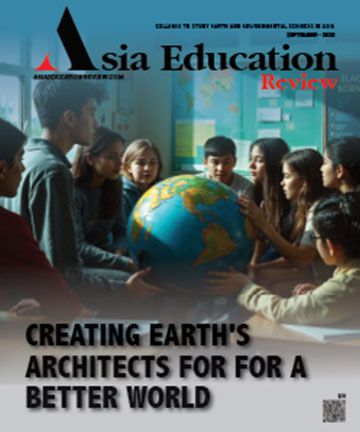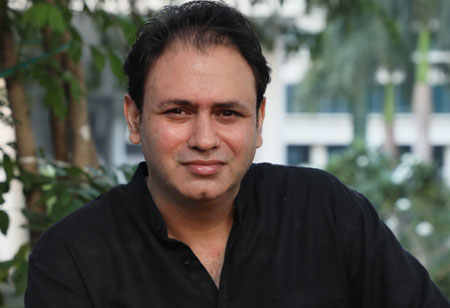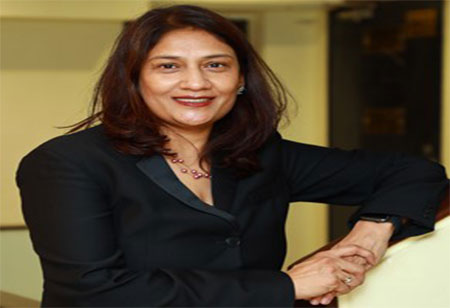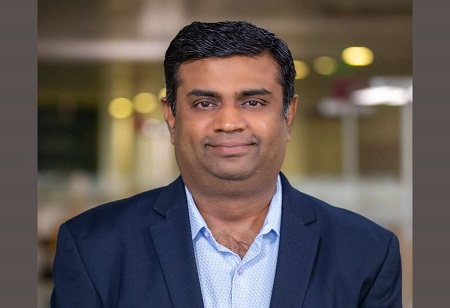Universitas Padjadjaran (UNPAD): Advancing Communication Education through Media & Technology Integration
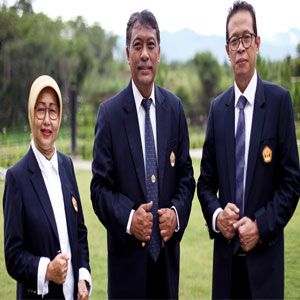
Dr. Jenny Ratna Suminar, Vice Dean & Dr. Dadang Rahmat Hidayat, Dean
Prof. Dr. Atwar Bajari, Vice Dean
Media and Mass Communication colleges in Asia have experienced a surge in popularity among students seeking high-quality education in the field. Among these institutions, the Faculty of Communication Science at Universitas Padjadjaran stands out as a beacon of excellence. Established in 1960, the faculty traces its roots back to the initial faculty of publicist and journalism, created to address the burgeoning demand for skilled journalists and publicist practitioners in Indonesia. At Universitas Padjadjaran (Unpad), the development of study programs not only meets national and international education standards through international accreditation but also incorporates indigenous values into its educational models to nurture both competence and character. This ethos is encapsulated in Unpad’s vision, which centers on ‘Advancing Law and Environmental Sustainability in National Development’. Consequently, establishing a global reputation becomes imperative to ensure the quality of higher education’s three pillars (tridharma) and to enhance the university’s global standing.
Unpad promotes a culture of RESPECT (Responsibility, Excellence, Scientific Rigor, Professionalism, Encouragement, Creativity, and Trust) in managing educational endeavors, emphasizing the continual cultivation of mutual respect. For the Faculty of Communication Science, the university’s foundational framework provides a guiding principle for developing teaching and learning activities within the faculty. The study programs within the faculty are expected to embody specific characteristics, including a focus on scientific advancement, professionalism, and a steadfast commitment to upholding legal standards and environmental stewardship in their curriculum. These distinctive features set them apart from similar programs offered by other institutions.
Over the years, the faculty has undergone a remarkable transformation, expanding its scope to encompass various disciplines within communication Science. Today, it offers programs in journalism, public relations, communication management, library and information science, television and film, and media production management. This evolution has contributed to its enduring popularity, making it one of the most sought-after faculties among prospective students in Indonesia.
The Faculty of Communication Science at Universitas Padjadjaran has garnered widespread acclaim for its academic excellence and achievements. It was recognized as the best school of communication in Indonesia for five consecutive years, a testament to its commitment to delivering top-notch education. Furthermore, the majority of its programs have received accreditation ratings of ‘very good’ and ‘excellent’ from the Indonesian Ministry of Higher Education.
In a significant milestone, the faculty recently attained international accreditation from AQAS Germany for seven of its study programs, marking a pivotal moment in its journey towards global recognition. Currently, the faculty boasts a diverse student body comprising 3,500 individuals from various cities in Indonesia and several other countries. Supported by a team of 119 highly qualified lecturers, many of whom hold the esteemed titles of professors or associate professors, as well as experienced practitioner instructors, the faculty ensures a rich learning experience for its students.
The Faculty of Communication Science at Universitas Padjadjaran emphasizes outcome-based education (OBE) through a curriculum designed to enhance graduates’ quality and competence. Supported by learning laboratories, the curriculum integrates TV and radio stations, along with online and digital media channels, providing practical experience. Research conducted by both faculty and students contributes to the teaching and learning process, with outputs published in reputable journals and presented at conferences.
The curriculum prepares students to respond to future developments in media and communication technology by emphasizing analytical skills and the ability to predict the impact of technological changes. Media and communication technology serve as both subjects of study and essential tools for learning and growth, enabling students to engage actively in their education. “Overall, the faculty aims to equip graduates with the skills and knowledge necessary to navigate the evolving landscape of media and communication effectively.
The impact of the Faculty of Communication Science at Universitas Padjadjaran extends far beyond the classroom, with its graduates making significant contributions to various fields worldwide. Through its unwavering dedication to excellence, innovation, and academic rigor, the faculty continues to shape the future of media and communication on both a national and international scale”, shares Prof. Dr. Atwar Bajari, Vice Dean.
Internationalization Initiatives to Encourage Future Leaders
The Faculty of Communication Science at Universitas Padjadjaran collaborates with leading institutions nationally and internationally, facilitating exchange programs and research partnerships. Learning extends beyond campus through internships, embodying the Merdeka Belajar- Kampus Merdeka ethos. Active internationalization efforts include hosting and engaging foreign lecturers, with a significant rise in their numbers over recent years.
These lecturers contribute to teaching, research, and supervision, hailing from diverse countries including Malaysia, Thailand, and the USA. The faculty hosts international conferences and participates in seminars, fostering networking and enriching academic experiences. Notably, it hosted the AMIC annual conference in 2023, attracting a diverse participant base from over five countries.
“Enhancing students’ abilities in their professions and entrepreneurship is a top priority in the current curriculum development. As the government implements the Freedom to Learn-Independent Campus (MBKM) program, universities, including Unpad, are encouraged to innovate and implement programs focused on enhancing competencies/professionalism in their respective fields, while also improving adaptability skills for future job requirements”, shares Dr. Dadang Rahmat Hidayat, Dean.
Mission Ahead
“As an educational institution, we continuously strive to develop various innovations in teaching and learning, research, and services to the community, to ensure that higher education institutions are not merely ivory towers that do not provide benefits to society. In an effort to provide direct benefits to society, the faculty, through several key figures, has become part of the establishment of professional and scholarly communication associations at both national and international levels, including leadership roles in the Indonesian Communication Scholars Association (ISKI) and the Indonesian Communication Higher Education Association (ASPIKOM) at the national level, as well as being one of the founders of the Asia Pacific Communication Alliance (APCA)”, shares Dr. Jenny Ratna Suminar, Vice Dean.
🍪 Do you like Cookies?
We use cookies to ensure you get the best experience on our website. Read more...

